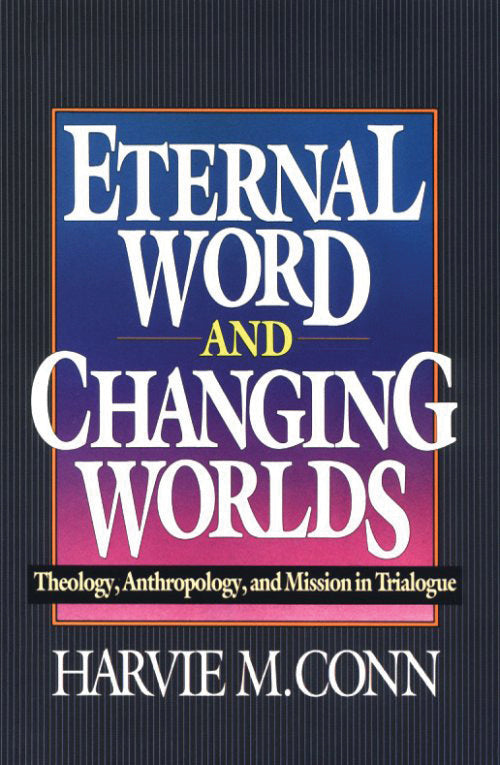Eternal Word and Changing Worlds: Theology, Anthropology, and Mission in Trialog
Conn, Harvie M.
Sold out
$19.98
$19.99
Unit price
/
Unavailable
This product will ship directly from the publisher and you may not receive tracking. Learn More
Eternal Word and Changing World is one of the most helpful and stimulating books I have ever read. In the first portion of the book, Conn presents, through a remarkable interweaving of disciplines, a rich intellectual history of anthropology, theology and missiology. This is tough reading but it establishes the groundwork for understanding how these three disciplines are, and always have been, integrally related. In the second section Conn engages then-contemporary (mid 1980s) evangelical discussions of culture, and argues, among other things, that for evangelical theology to remain understandable and missiological it must engage the profound questions of hermeneutics and meaning, while maintaining an ear to anthropology and missions. Theology can only be done in the context of culture. And culture need not be feared as a dangerous relativizing force, but rather deeply understood, critiqued, and employed for the extension of the proclamation of the gospel. The final section of the book is arguably the most provocative and challenging. Conn lays out models for both the doing of theology and theological education. It is these two chapters (six and seven) that have provided the most food for thought in my work as a young biblical scholar and theological educator.
For the interested reader, I offer the same suggestion I give my students: don't feel guilty about beginning with the third section of the book. While you may miss some of the background and nuances, you can easily begin with chapters six and seven, then go back to read the first five chapters of the book. This reading strategy may allow you to understand why Conn does what he does in the first two sections. Moreover, seeing where he ultimately heads will give you categories and important themes to help you read the admittedly dense first two sections.
I cannot recommend this book strongly enough for anyone who is interested in thinking critically about his or her setting and wrestling with the question of how best to present the gospel in an increasingly culturally-complex world. - Michael B. Kelly - Assistant Professor of Old Testament, Westminster Theological Seminary, Philadelphia
For the interested reader, I offer the same suggestion I give my students: don't feel guilty about beginning with the third section of the book. While you may miss some of the background and nuances, you can easily begin with chapters six and seven, then go back to read the first five chapters of the book. This reading strategy may allow you to understand why Conn does what he does in the first two sections. Moreover, seeing where he ultimately heads will give you categories and important themes to help you read the admittedly dense first two sections.
I cannot recommend this book strongly enough for anyone who is interested in thinking critically about his or her setting and wrestling with the question of how best to present the gospel in an increasingly culturally-complex world. - Michael B. Kelly - Assistant Professor of Old Testament, Westminster Theological Seminary, Philadelphia
Specifications
-
Cover Type
-
ISBN
-
Publisher










